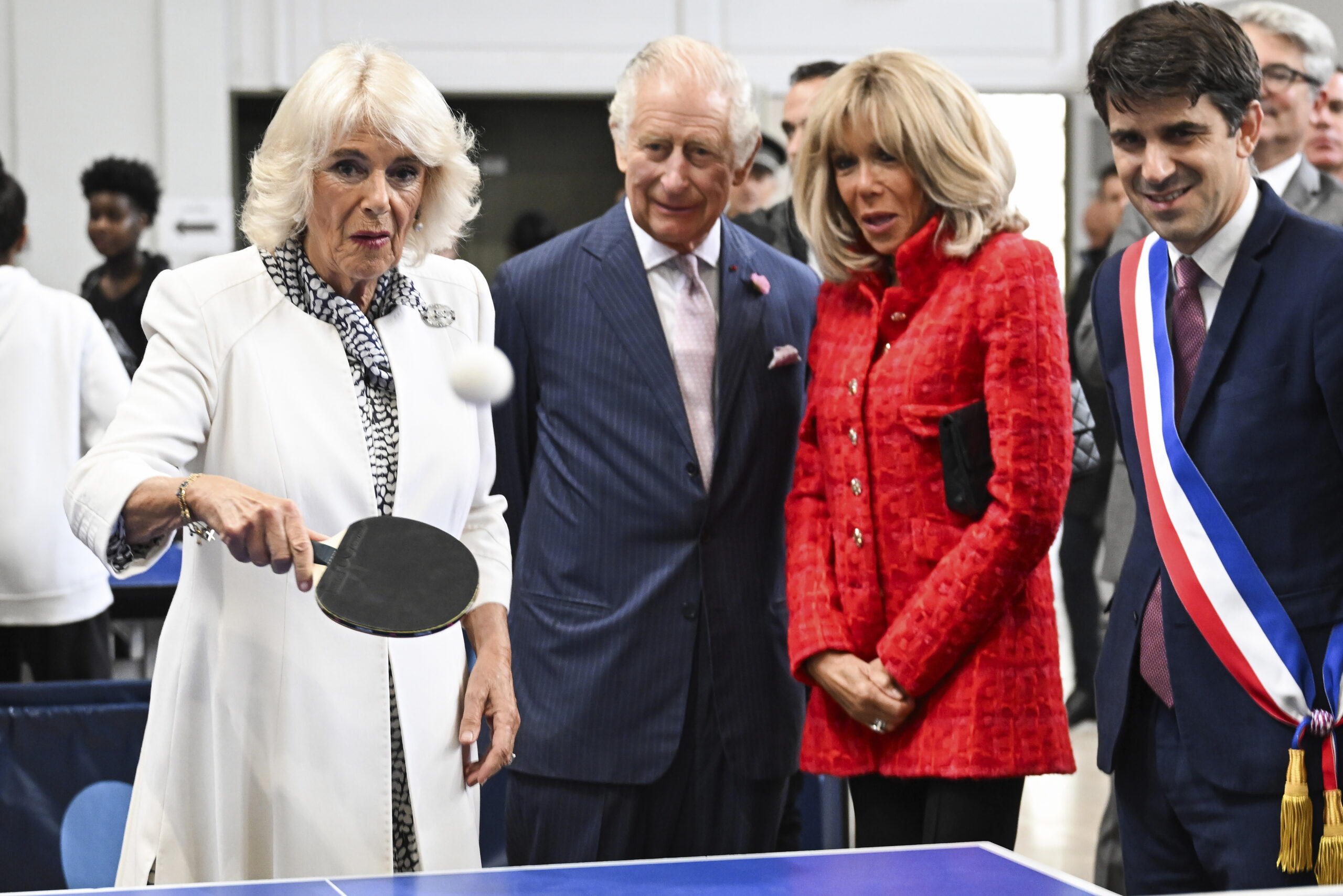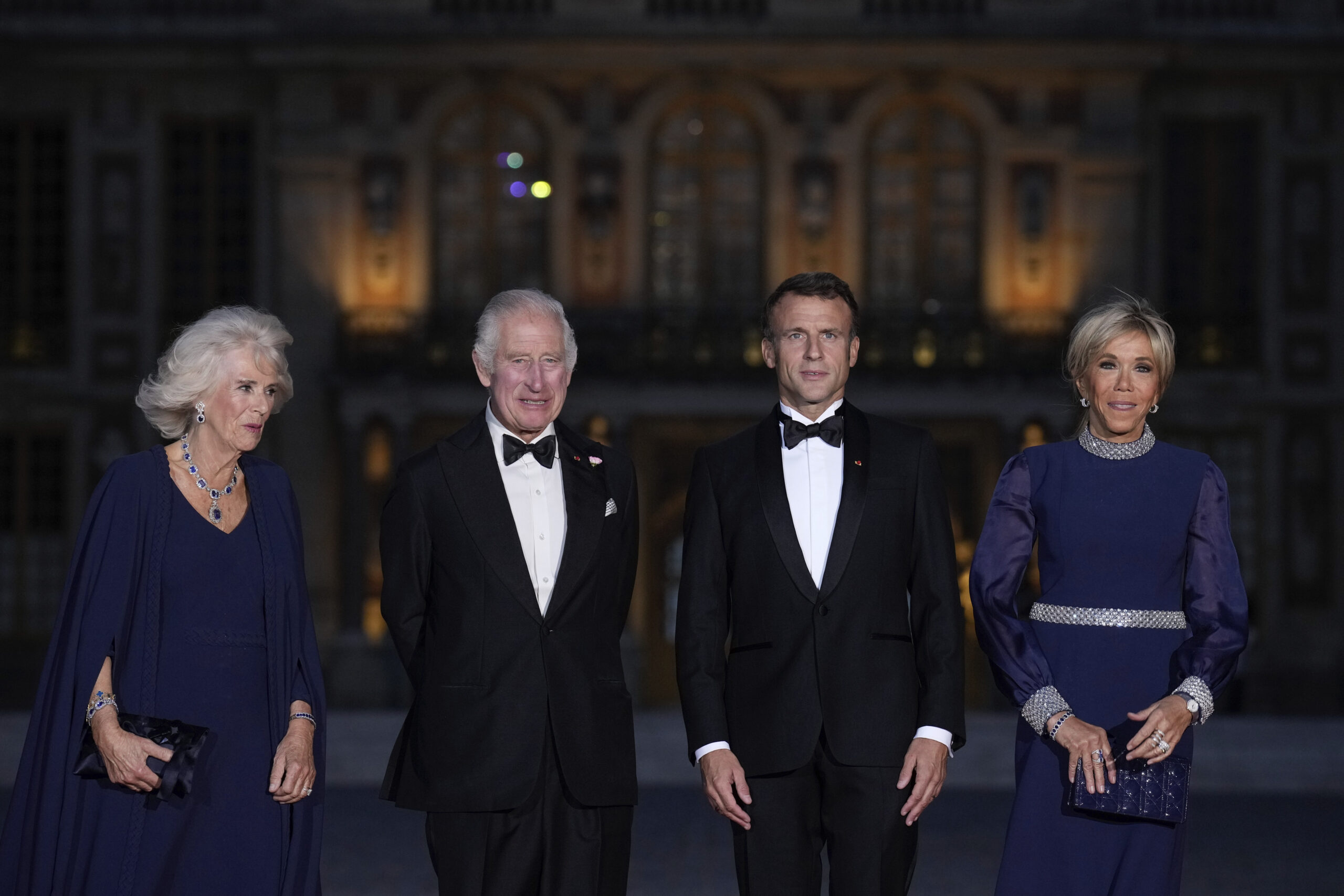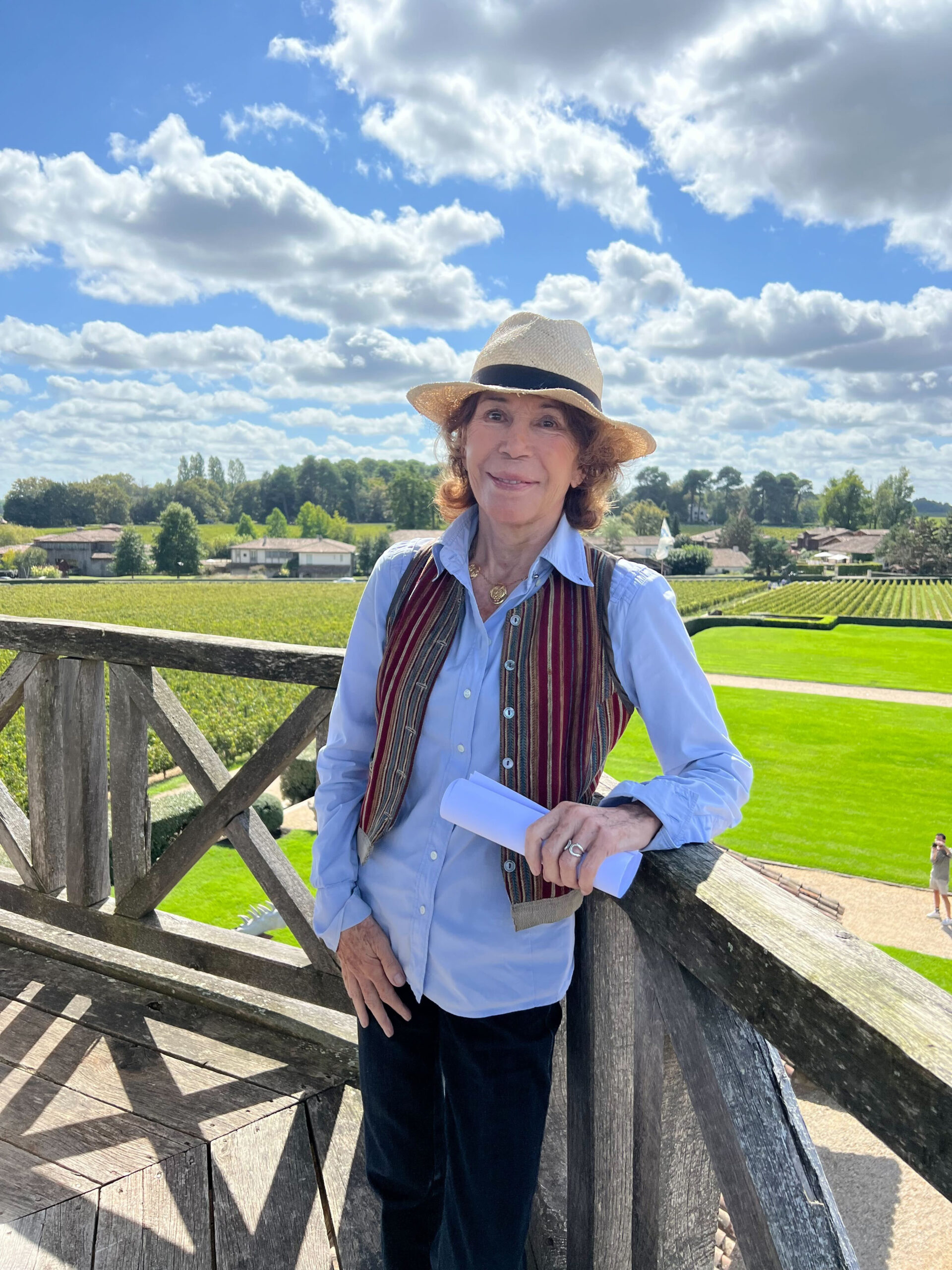BORDEAUX, France (THE WASHINGTON POST) – Heralded as the ‘Climate King’, Charles ended his France state visit at an organic vineyard leaving a farmer inspired with His Majesty’s own organic farming philosophy.
Florence Cathiard first met the future British king at a polo match about two decades ago. Cathiard, a former champion skier for France’s national team, wasn’t so taken by Prince Charles’s skill in the saddle, but she told him how incredibly inspired she was by his green-fingered philosophy.
She recalls confessing she had all his books, gushing about the garden at his Highgrove estate, saying she adored his Duchy Organic biscuits. She was trying some organic methods herself, she told him, at the Bordeaux vineyard she and her husband had recently bought. No more “drugging” the grapevines with pesticides, she said, eliciting Charles’s approval.
Now that vineyard, Château Smith Haut Lafitte, is a “biodynamic” operation, one that relies on medicinal plants to protect the vines from disease, uses llamas to weed the fields, takes the lunar calendar into account when pruning and has pioneered the capture of carbon dioxide from wine fermentation, transforming it into baking soda.
It is here where King Charles III on Friday concluded his first state visit to France, a three-day trip in which he seemed in his element, reviving some of the vocal climate advocacy he kept largely in check during his first year as monarch.

Charles has said he accepts that he can’t speak out on issues the way he once did – political neutrality is widely considered essential for the survival of the monarchy in modern times. But in France, he demonstrated that he hasn’t left his past identity behind.
During a Wednesday evening speech at the Palace of Versailles, Charles joked, “I think it was a French king who once said that he would rather be a woodcutter than the king of England, dealing with our national complexities. As an avid forester, I am pleased to report that it is entirely possible to combine the two!”
In remarks in the French Senate chamber on Thursday, Charles made climate an even more dominant theme. “Our most existential challenge of all,” he said, is “global warming, climate change and the catastrophic destruction of nature.” He proposed that Britain and France work together in an alliance for sustainability – building on the Entente Cordiale of 1904 – “to respond more effectively to the global emergency in terms of climate and biodiversity.”
Charles also met with French business leaders to talk about investments to protect biodiversity. In the public remarks at that event, at the Museum of Natural History in Paris, President Emmanuel Macron thanked him for “the clear vision” Charles has long sustained on environmental issues.

Back in Britain, in a notable contrast, Prime Minister Rishi Sunak had just announced delays to the country’s climate goals, saying people might not be ready to bear the costs of replacing their gasoline cars or old water heaters. Car companies and energy companies objected to the new uncertainty and joined climate advocates in their outrage.
Charles and Queen Camilla hurt their climate credentials somewhat with the decision to travel to France this week by plane – forgoing the lower-emissions Eurostar that goes from London to Paris in just over two hours. They also flew to Bordeaux on Friday, although France has pushed to limit short-haul domestic flights and get people onto trains.
But environmentalists who have been disappointed to see Charles skip big events in the past year, like the United Nations COP27 climate summit in November, may have been happy to see him once again come out swinging on the world stage.
Florist Michel Hugot, 58, said it was “an honour” to host Charles at Paris’s outdoor flower market, the Marché aux Fleurs, on Thursday. Hugot is passionate about sustainability – encouraging customers to buy plants like figs because they require less water.
He noted that the French haven’t always had an easy relationship with monarchies: “We decapitated our royals.” But many vendors proudly showed off framed photographs from Queen Elizabeth II’s visit to the flower market in 2014. And Charles, Hugot said, was more than okay. “When you are involved, yourself, in fighting climate change and going green…you are in favour of anyone also fighting climate change,” he said.

On Friday, Charles visited environmental projects in Bordeaux and the surrounding area and travelled via the province’s network of electric trams. He met emergency workers affected by the massive wildfires in 2022 and spent time at Forêt Experimentale, a project designed to monitor the responses of urban forests to climate change.
His final stop was Château Smith Haut Lafitte, where the Cathiards guided him and Camilla on a tour, including the llamas at work. Then the French couple opened a Grand Cru Classé from the year the British royal couple was married and offered a toast to the king’s health.
The Cathiards were unsure exactly why the British Embassy selected them. Florence hadn’t had any interaction with Charles since that polo match long ago. The couple assume their vineyard was picked for its eco credentials. They heard that competitors in the region were jealous.
The Washington Post visited the vineyard and spoke with the owners when they were preparing for the royals’ arrival – and when British officials and French police officers made what Cathiard said was about their sixth visit since the chateau had been informed it was on the short list to host.
“I think they are coming to teach us how to curtsy,” she joked.
The vineyard has its own fascinating backstory. It dates to the 14th century and a French noble family, although at times it has had British owners: 18th-century Scottish merchant George Smith and 20th-century heavyweight boxer George Walker, who served time in prison in London, made money in real estate, went bankrupt and ended up running betting shops in Russia.
Florence and Daniel Cathiard, who met as skiers on the French national team, bought the property from Walker in 1990 and set about transforming it from a middling chateau to one that would attract international acclaim.
Like Charles in his early environmental years, the couple was initially mocked for experimenting with organic techniques and biodynamics – a holistic approach pioneered in the 1920s by Rudolf Steiner, an Austrian occultist and social reformer.
Cathiard scoffs at some of the more extreme ideas of biodynamics. She said for instance, that stuffing a deer bladder full of Yarrow flowers and hanging it high in a tree for the duration of summer is “crazy.”
That said, she admitted to stuffing a cow’s horn with manure and burying it the ground. And vineyard workers do prune the vines “following the descending moon theory.”
The vineyard prides itself on blending innovation and tradition. So there are solar panels. And the carbon-capture technology – which the couple’s daughter, Alice Cathiard Tourbier, presented at COP21, the 2015 Paris Conference on Climate Change.
But there are also horses, which Florence Cathiard explained are better than tractors on “more fragile soil” and help to work the fields with the white wine grapes.
During The Post’s visit, Daniel Cathiard led to way to a wood shop area that dreamily smelled of toast. It’s rare for a vineyard to make its own barrels by hand, but a cooper was there, hammering away and “toasting” the locally sourced French oak wood in a fire. The British royals were invited to have a go at this artisan craft.
They were also taken up to a tower that offers sweeping views of the property. From up there, you can’t see the challenges of running a French vineyard in an era of climate change – like the mildew that reduced the yield on many Bordeaux estates this year. All you can see are rows and rows of grapes. And the beehives, hedges and forests that help maintain biodiversity.
It’s a view fit for a climate king.




















































